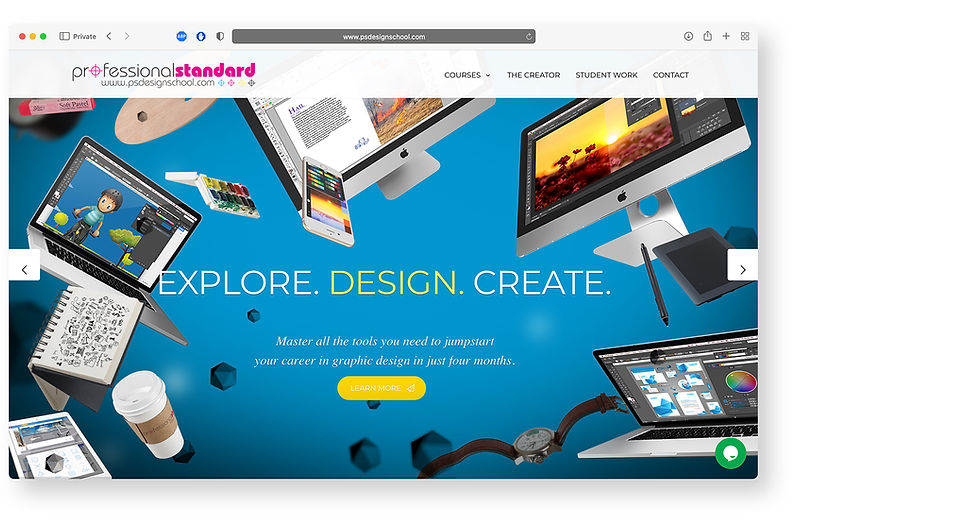Is a design course for you?
- Deena Englard

- Mar 3, 2022
- 3 min read
Updated: Jul 13, 2025
Deciding how to learn design?
While formal education is not a requirement for a designer, there are plenty of benefits to getting your career started on solid footing. Here's some of the pros for each route.
Pros for Attending College

1. Mentorship
You'll have dedicated teachers and mentors who will work with you, help you discover your strengths and weaknesses and help you improve.
2. Accountability and Time Management
Deadlines and accountability are built into the system so you can't just fade out after the first few classes and never finish, like you might do with an at-home course. You also learn to design within a set timeframe which is excellent practice for designing within client timeframes.
3. Public Speaking
You'll get practice presenting your designs and explaining your decision process to peers and superiors.
4. Theories in Addition to Technical Skills
You'll learn design thinking skills such as problem solving, color theory and typography in addition to learning how to use the technical design programs.
5. Internships
You'll gain real-life experience through a work internship during your last semester.
6. Networking
You'll create relationships with fellow designers who can refer or collaborate with you on jobs and give you feedback from your peers.
Pros for Taking a Course/Certificate

1. Save Money
Courses are much cheaper compared to the cost of college.
2. Built for the Busy
With a course, there's less of a time commitment (only a few months rather than a few years). Plus, sometimes you get unlimited access to the videos and can go at your own pace.
3. Remote Learning
The course can be taken remotely, while still being with a completely Jewish cohort.
4. Ongoing Support
The organization might send you ongoing communications (such as an e-newsletter with tips and tricks) and provide mentorship even after you've completed the course, along with job openings and placement.
5. No Time Wasted
You won't have to take courses unrelated to your field of interest, such as Literature, History and Biology, which you would have to take at college. So you can say goodbye to tests and embrace the life of projects.
6. Business Knowledge
You might have the opportunity to take relevant courses on business management and processes which will be useful if you ever work as a freelancer
Some popular Jewish design courses
The Bold Edge
Use code DEF22 for $50 OFF* your course! ($25 for teen courses)
Sign up by emailing yaffa@theboldedge.com or calling Yaffa at 718.853.4186 x102. Don't forget to mention the code DEF22 to get your discount!
*This is an affiliate code - it doesn't cost you anything and helps support Frocks in Stock :)
Design Alive
PS Design School
Maalot/WITS (recently renamed)
TTI
Baily Biederman
DesignPro by Zinque Studio
And another course that might interest you:
CopyTribe
It's a course for copywriters but if you reach out they sometimes offer designers the ability to pay for only the half of the course that's about copywriting and skip the half that's about how to run a copywriting business. Definitely a great skill to have especially if you're freelancing and find yourself writing a lot of copy for your clients. Get a professional certification and start charging for the service!
Additional online learning resources
CreativeLive - creativelive.com
Canva - canva.com
Udemy - udemy.com
Skillshare - skillshare.com
Coursera - coursera.com
Lynda/LinkedIn - linkedin.com
Just remember: the more time you invest into learning and practicing, the better your skills will be, regardless of where you get your education.
Disclaimer: I never took any of these courses and don't have personal experience with any of them.
If you’re looking for personalized advice to help you grow your design skills from beginner to experienced and increase your confidence in your work, check out design critique and coaching options here.
























